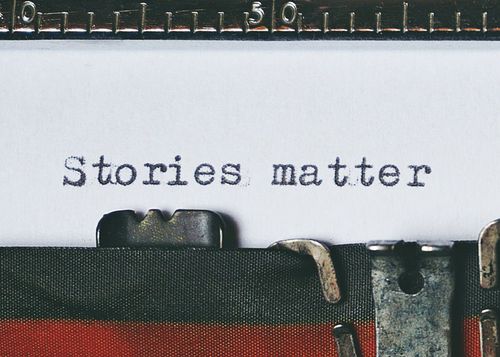By Cindy Kouyate
Author’s Note: The following pieces explore some of my experiences as a female BIPOC, as well as my general commentary on the inner conflict that results when asked to speak on said experiences. This commentary is not directed towards any specific entity, but rather speaks on media outlets as a whole.
I have 350 to 500 words to talk about my life as a young, Black person living in Fresno. And I cannot speak on behalf of all Black people, but I do think I speak with other Black people when I say that our experiences cannot be restricted to the parameters of a story, as that implies a plot, rising action, and some kind of resolution. Our experiences cannot be synopsized into a tight two and half minute sound bite that is palatable to the limited attention span and emotional investment of a potentially interested audience.
Our experiences are an anthology; discrete moments of pain, grief, and anger, journal-bound with the thread of racism. This collection of trauma houses incomplete chapters, characters that only appear once, consistently changing points of view, settings that shift from physical to meta-physical within the span of a sentence.
So while I have your attention for a second, here are some of my excerpts with familiar settings.
Armstrong and Shields: My little sister and I are walking our dog on a pleasant summer day when a pickup truck drives by and a man yells out the window “White lives matter!!”. Trump is elected a few months later.
Alta Sierra Intermediate: A few minutes before 2nd period science starts and my male classmate tells me he “like[s] chocolate cake”. I’m in 7th grade and don’t know how to respond, so I roll my eyes.
River Park: A customer I’m ringing up tells me I’m beautiful because I “just have that exotic look about” me. This was January 2020.
Fashion Fair: My manager tells me how she’s always thought that African Americans had a “certain innate strength about them”.
Reyburn Intermediate: My friend and I are sitting out during P.E. and another classmate is confused why I don’t want to play because “shouldn’t you be good at basketball?” Sarcastically I retort that “I’m a girl and girls aren’t good at sports”, and that sits well with him.
A Fresno City Council meeting: Live, I hear two separate public comments verbally assaulting the Black community, one complaining about how there are “too many N[-words] at the airport” and other suggesting that we “kill all the N[-words]”.
An apartment complex down Friant: A white boy flirting with me at a Halloween party tries to convince me that he’s allowed to say the N-word because his Black friend gave him a “pass” so I shouldn’t be offended.
At the Willow & Shaw Denny’s: A member from my pop culture club at Fresno State touches my hair without permission. I tell him to stop and he replies, “but it’s so soft” and I duck my head out of the way because he reaches out to touch it again.
And I know that any Black person who has been able to “tell their story” has had to make the call of what details are or aren’t important in order to plead their humanity to others in a clean, concise way. And when we’re killed, then even that choice is stripped from us, as news reports and media will create the “most appropriate” narrative on our behalf.
So be mindful when you ask a Black person to tell their “story”. Be specific in what you want to know and make sure you actually have the attention span and the emotional investment necessary to learn from their experiences and then do better yourself…because 350 to 500 words doesn’t even break the surface of this anthology.

